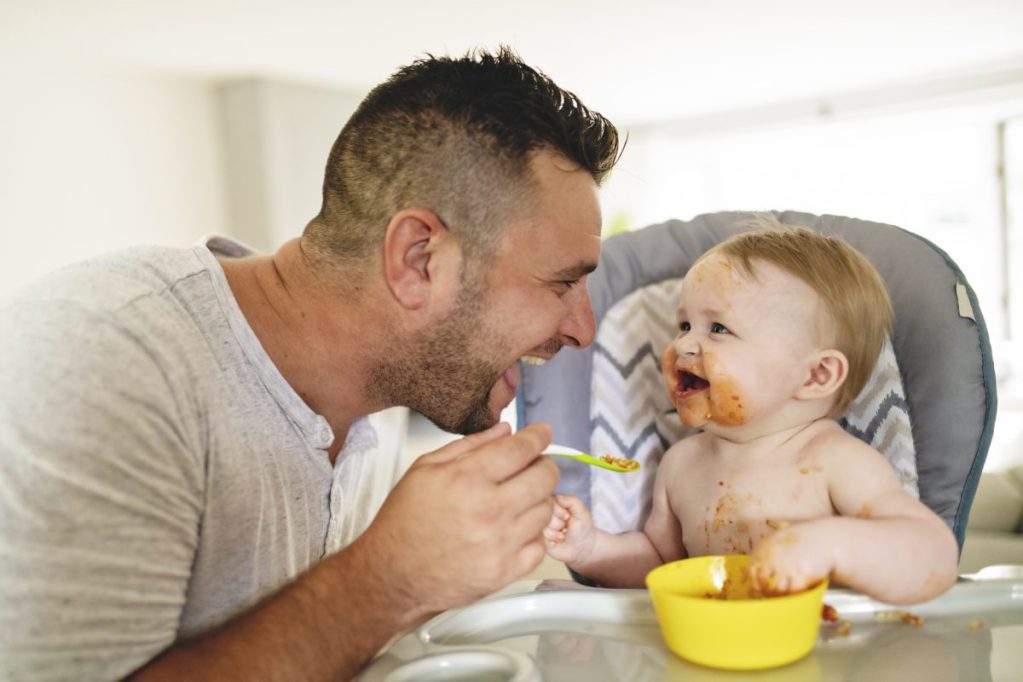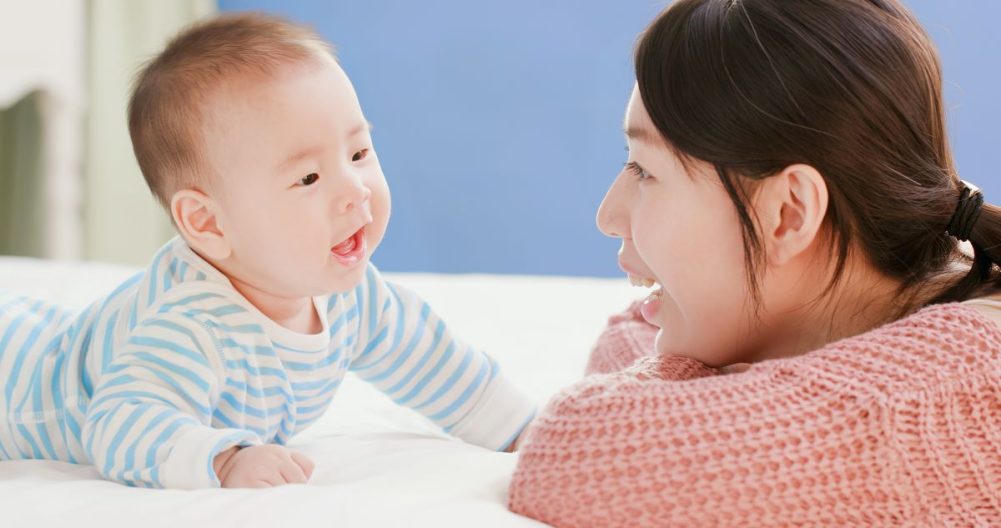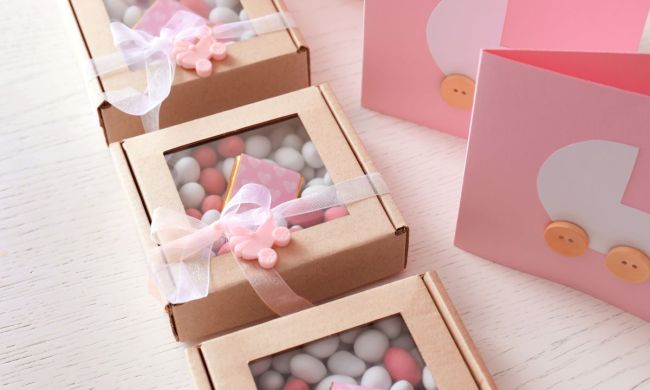Baby milestones are so exciting, and parents love everything their little one does from day one. Of course, parents can’t wait for baby to start talking. Those first words are memorable and proud parent can’t wait for baby to say mama and dada. When should parents expect to hear their adorable baby utter their first words? According to the Mayo Clinic, by the end of baby’s first year, you may head baby say mama. Most babies begin uttering simple words like mama and dada at around the 12-month mark. Every baby’s speech and language development is different though. Some little ones may start talking sooner than others, which is what makes speech and language developmental milestones so important.

How does baby start talking
Even before your baby starts speaking, they’re communicating. Babies use crying as an early communicator. This quickly expand to gestures, signs, and pointing to help parents understand what they want. All these signals help prepare your baby for their talking debut. These interactions teach children the basics of communication and the concept of language. Parents are a baby’s primary role model when it comes to speech and language development. Baby’s first year is full of speech and language milestones which help little ones on their way to speaking their initial words.
Baby’s first year
Little ones learn so much during the first year of life. They’re watching and listening to you and learning to manipulate their tongue and vocal cords. From those first cries, your baby begins communicating, but it isn’t until about eight months that language starts appearing.
At eight months, most children are babbling various sounds, many of which may resemble familiar, simple words. Don’t put too much stock in that early “dada” sound just yet though. Real language, as in using words to communicate a concept, doesn’t usually arrive until a little later.
Around a year is when language really kicks in. Many children are using language to their advantage and may have already learned to say mama. From here, language can develop rapidly.

What if baby isn’t talking
Pediatricians ask parents about speech and language milestones throughout the first year of well visits. Smiling, cooing, babbling, and recognizing the sound of your voice are all early speech and language markers. While every baby learns how to speak in his or her own time, milestones can help doctors identify a potential delay. Early intervention is key with speech and language developmental issues.
Babies with older siblings will sometimes begin talking later because older siblings do it for them. If a household is bilingual, it may take a baby longer to begin to talk because he or she is hearing two languages. Any issues with hearing will also impact speech and language development.
If by your baby’s first birthday, he or she is not pointing and making signs like waving bye-bye, talk to your pediatrician. By 18-months, if your baby hasn’t said mama or seems to be having trouble imitating sounds and is unable to understand simple requests, have a conversation with your doctor. Limited speech and language development by two could be a sign early intervention is needed.

How parents contribute to language development
A big part of encouraging your child to talk is the interaction with you. Children whose parents (and families, siblings, guardians, and anyone else involved in the child’s life) read, sing, and talk to the child from the earliest days show more signs of language awareness than those without such stimuli.
Face-to-face interaction is still the gold standard for this type of language input. While talking toys and screens can serve a purpose, they don’t do much to encourage speech and language development if you aren’t interacting with the baby.
The same goes for second languages. Babies can learn second languages too, but not if the instruction comes from a screen. The person-to-person interaction jumpstarts the magic.
How to encourage your baby to talk
There are quite a few things you can do to help ensure that your baby has the best chance of talking. Here’s what to keep in mind as you go through your child’s first year.
- Read, read, and read some more – Even if your baby doesn’t seem to pay attention or only wants to chew on the books, it’s still important to read. The input is a vital part of your child’s later grasp of language.
- Pay attention to intonation – Slow down and read like you mean it. Also, talk like you mean it. Your child is learning so much about how conversation happens during this first year. Even if they respond with babbles, they’re learning how to hold a conversation with you.
- Use real words – While there may be some interest in baby talk, it’s important to use mostly real words so that your baby grasps the concept of language. Early on, babies may communicate using approximations (“ba” for bottle), but these will eventually evolve.
- Avoid correction – As your child works through sounds, you can acknowledge what your child is saying and continue the conversation.
- Don’t panic – If your baby isn’t talking and he or she is nearing one, it’s not a huge deal. Language is a broad benchmark but keep in touch with your pediatrician. Discuss any concerns you have when it comes to speech and language delays. Let go of the stress of wanting your baby to start talking early.
- Identify yourself – Referring to yourself as “mama” or “dada” can help your child learn to associate the word with the person. “Mama has your food” or “Look at dada!” can go a long way to encouraging those first words.
- Don’t compare – The worst thing to do is try to keep up with babies in your play group of social circle. A baby starts talking when he or she is ready. Comparing will only put stress on both of you.
- Play music – Music is another way to stimulate speech and language development. It doesn’t have to be just classical music either.
Most of all, be patient and spend lots of time face to face with your baby. Those language skills will happen when they need to, and all children are different.
Baby say “mama”
When you finally hear your baby say mama, it’s magic. Once your child begins his or her language journey, it can seem like overnight. Before you realize it, your little one is starting to talk like a little person. From those first adorable babbles and sounds to full-fledged talking, saying “mama” might be your favorite memory of all. You’ll always remember your baby’s first words.







